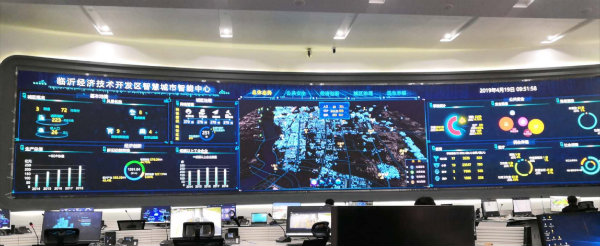Amid accelerating digital transformation, a tech company has pioneered the integration of holographic LED wall technology into data center operations. This dynamic 3D visualization system transforms massive data volumes into immersive light displays, overcoming the limitations of traditional 2D screens. It enables operations staff to intuitively grasp data correlations, providing unprecedented decision-making support.

Sansi Case Study · Linyi, Shandong P1.25 Indoor Full-Color Display (87㎡)
Technical Architecture & Core Advantages
The holographic system features modular design with high-density LED units and real-time rendering engines. Key innovations include:
l Spatial Mapping Algorithm: Automatically converts abstract data flows into 3D light-point matrices, where colors and motion trajectories indicate data priority and trends
l Multimodal Interaction: Supports gesture recognition and voice commands for zoom/rotate operations, reducing complex query response times to milliseconds
l Environment Adaptation: Auto-adjusts brightness according to ambient light for 24/7 clarity while lowering energy consumption
Industry Applications
l Financial Risk Control: Synchronously visualizes global market fluctuations
l Healthcare: Overlays CT scans with vital signs data in anatomical structures
l Cybersecurity/Industrial Diagnostics: Ideal for rapid anomaly detection in threat alerts or equipment failures
User Experience Enhancement
Test engineers report significantly improved anomaly detection efficiency. Users can:
l Drag-and-drop datasets midair to uncover hidden correlations
l Enable multi-user collaboration (different teams manipulate independent data layers simultaneously)
l Boost meeting efficiency by 40% compared to conventional displays
Sustainability Features
The eco-friendly design uses recyclable materials and energy-saving technology to reduce power consumption per unit area. Its modular structure facilitates upgrades, extending equipment lifespan and aligning with green data center trends.